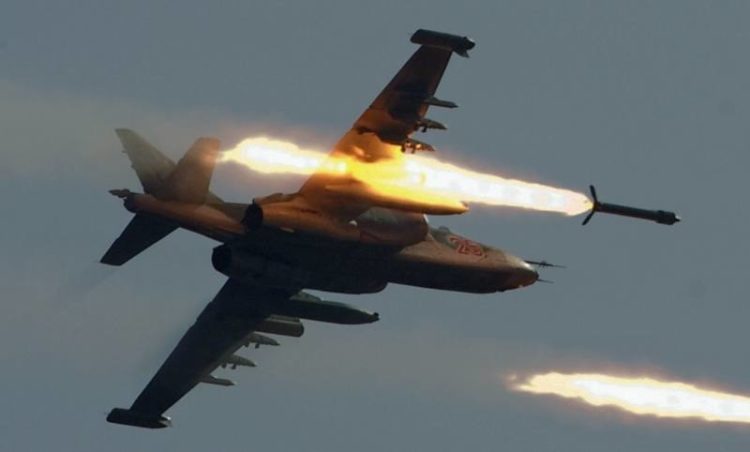Defence
US approves sale of attack helicopters, other military equipment to Nigeria

After lifting objections based on human rights concerns, the United States has approved the sale of military equipment worth $997 million to Nigeria.
The weapons include 12 attack helicopters, 2,000 advanced precision kill weapon system guidance sections, and a night vision imaging system, according to the Defense Security Cooperation Agency, which announced the sale of the helicopters and related defense systems to the Nigerian military on Thursday.
According to reports, the US declined Nigeria’s request due to military concerns over human rights, which the Federal Government refuted.
The United States said the sale of the weapons is part of efforts to boost security for Nigeria.
“The State Department has made a determination approving a possible Foreign Military Sale to the Government of Nigeria of AH-1Z Attack Helicopter Related FMS Acquisitions and related equipment for an estimated cost of $997 million.
“The Defense Security Cooperation Agency delivered the required certification notifying Congress of this possible sale today.
“The Government of Nigeria has requested to buy twelve (12) AH-1Z Attack Helicopters; twenty-eight (28) T-700 GE 401C engines (24 installed, 4 spares); and two thousand (2,000) Advanced Precision Kill Weapon System (APKWS) guidance sections. Also included is Night Vision Cueing Display (NVCD); commercial variant GPS with Standard Positioning Service (SPS); communication equipment; electronic warfare systems; AN/AVS-9 Aviator’s Night Vision Imaging System; M197 20mm machine gun; Target Sight System (TSS); support equipment; spare engine containers; spare and repair parts; tools and test equipment; technical data and publications; personnel training and training equipment; Mission Planning system; U.S. Government and contractor engineering; technical, and logistics support services; U.S. Government and contractor assistance and oversight of facilities construction to include the provisioning of plans, drawings, and specifications.
“$25M of case funds will be allocated for institutional and technical assistance to the Armed Forces of Nigeria (AFN) to continue Air-Ground Integration (AGI) program, which includes developing targeting processes that are legally compliant with International Humanitarian Law and the Laws of Armed Conflict; and other related elements of logistics and program support. The total estimated program cost is $997 million.
“This proposed sale will support the foreign policy goals and national security objectives of the United States by improving the security of a strategic partner in Sub-Saharan Africa.
“The proposed sale will better equip Nigeria to contribute to shared security objectives, promote regional stability and build interoperability with the U.S. and other Western partners. This sale will be a major contribution to U.S. and Nigerian security goals. Nigeria will have no difficulty absorbing the equipment and services into its armed forces.
“The proposed sale of this equipment will not alter the basic military balance in the region. The principal contractors will be Bell Helicopter, Textron, Fort Worth, TX; and General Electric Company, Lynn, MA. There are no known offset agreements in connection with this potential sale.
“Implementation of this proposed sale will require the assignment of U.S. Government or contractor representatives to Nigeria for mobile training teams and contract logistics support. The case will include special training on the law of armed conflict and human rights, and air-to-ground integration to minimize civilian harm in air operations.
“This proposed sale will also require multiple trips by U.S. Government and contractor representatives to participate in program and technical reviews plus training and maintenance support in-country, on a temporary basis, for a period of five (5) years. It will also require approximately three (3) contractor support representatives to reside in country for a period of two (2) years to support this program.
“There will be no adverse impact on U.S. defense readiness as a result of this proposed sale.
“The proposed sale of this equipment will not alter the basic military balance in the region. The principal contractors will be Bell Helicopter, Textron, Fort Worth, TX; and General Electric Company, Lynn, MA. There are no known offset agreements in connection with this potential sale.
“Implementation of this proposed sale will require the assignment of U.S. Government or contractor representatives to Nigeria for mobile training teams and contract logistics support. The case will include special training on the law of armed conflict and human rights, and air-to-ground integration to minimize civilian harm in air operations.
“This proposed sale will also require multiple trips by U.S. Government and contractor representatives to participate in program and technical reviews plus training and maintenance support in country, on a temporary basis, for a period of five (5) years. It will also require approximately three (3) contractor support representatives to reside in country for a period of two (2) years to support this program.
“There will be no adverse impact on U.S. defense readiness as a result of this proposed sale.
“This notice of a potential sale is required by law. The description and dollar value is for the highest estimated quantity and dollar value based on initial requirements. Actual dollar value will be lower depending on final requirements, budget authority, and signed sales agreement(s), if and when concluded,” the statement read.
Defence
Shettima Leads Nation to Honour Fallen Heroes at 2025 Armed Forces Remembrance Day

Vice President Kashim Shettima on Wednesday led a distinguished delegation, including Senate President Godswill Akpabio, members of the Federal Executive Council, National Assembly, service chiefs, and the diplomatic corps, to pay tribute to the nation’s fallen and living heroes.
The solemn occasion, held at the National Arcade in Abuja, featured a wreath-laying ceremony marking the climax of the 2025 Armed Forces Celebration and Remembrance Day (AFCRD).
Vice President Shettima was the first to lay a wreath, followed by Senate President Akpabio, Deputy Speaker of the House of Representatives Benjamin Kalu (representing Speaker Tajudeen Abbas), and Chief Justice of Nigeria Justice Kudirat Kerere-Ekun.
Other participants in the ceremony included Minister of Defence Muhammed Badaru, Minister of the Federal Capital Territory Nyesom Wike, Minister of State for Defence Bello Matawalle, and service chiefs led by the Chief of Defence Staff, Gen. Christopher Musa. The Inspector-General of Police, Kayode Egbetokun, also joined in paying respects.
Representatives of the diplomatic corps, the Nigerian Legion, and widows of fallen soldiers, led by Veronica Aluko, President of the Military Widows Association (MIWA), also laid wreaths to honour the heroes.
A traditional military salute followed, with the firing of three volleys, a symbolic act rooted in the age-old battlefield custom of pausing hostilities to retrieve the fallen.
The Vice President capped the event by signing the anniversary register and releasing ceremonial white pigeons, symbolizing peace and freedom.
The week-long celebration began on January 10 with a Jumma’at prayer at the National Mosque, followed by an interdenominational Christian service on January 12. Other highlights included a social and awards evening for military personnel, a regimental dinner and awards night for officers, and a lecture and art exhibition hosted by Defence Headquarters.
This year, the celebration, renamed Armed Forces Celebration and Remembrance Day, aims to honour both fallen heroes and serving personnel for their dedication to national peace and security.
Observed annually on January 15 in Nigeria, the day commemorates those who sacrificed their lives in global conflicts, including the First and Second World Wars, the Nigerian Civil War, peacekeeping missions, and internal security operations. It also serves as a platform to honour veterans and garner support for the families of the fallen.
As Vice President Shettima noted during the event, “Their sacrifices remind us of the cost of freedom and the unwavering commitment required to preserve our nation’s unity and peace.”
Defence
Armed Forces Remembrance Day: Makinde Reaffirms Commitment to Fallen Heroes’ Families

Gov. Seyi Makinde of Oyo State has reiterated his administration’s unwavering support for widows and children of fallen heroes, as well as the welfare of vulnerable ex-servicemen.
The governor made this pledge during the grand finale of the Armed Forces Remembrance Day celebration, held on Wednesday at the Arcade, Government House, Agodi, Ibadan.
Makinde emphasized that the state government would prioritize the welfare of those who had sacrificed for the nation’s unity and security.
“The fallen heroes paid the supreme price to ensure the country remained one, safe, and secure,” Makinde said.
He also commended the service commanders, officers, and men of all security agencies operating in the state for their dedication to maintaining peace and fostering economic growth.
“They are supporting this administration to maintain an environment where economic activities can thrive,” he added.
The chairman of the Nigerian Legion, Oyo State Command, Julius Ogunkojo, called on the government to address the needs of officers and men of the armed forces. He also appealed to well-meaning Nigerians to assist ex-servicemen in achieving better living standards.
The event featured the symbolic firing of rounds volley, laying of wreaths, and the release of ceremonial pigeons by the governor, symbolizing peace and unity.
The Armed Forces Remembrance Day, celebrated annually, honours the sacrifices of past and present military personnel for the nation’s security and sovereignty.
Aviation
NAF airstrikes destroy terrorist food depot, kill scores in Lake Chad

This is contained in a statement by the Director, Public Relations and Information, Nigerian Air Force (NAF), Air Commodore Olusola Akinboyewa, on Monday in Abuja.
Akinboyewa said the NAF aircraft carried out the operations in Nov. 23 on the strategic location, identified through meticulous intelligence efforts.
He said the location served as a critical food storage site and a sanctuary for terrorist commanders and fighters.
He added that intelligence had previously linked terrorists in the location to recent attacks, including the assault on troops in Kareto on Nov. 16.
According to him, the NAF fighter jets, in response, launched a robust air interdiction mission, destroying identified structures used as storage facilities and neutralising terrorists on-site.
“Mop-up operations using cannons ensured the complete elimination of fleeing hostile elements.
“The operation’s success was made possible by extensive Intelligence, Surveillance, and Reconnaissance (ISR) missions conducted over several days, confirming the presence of active terrorist structures camouflaged under dense vegetation.
“The destruction of the terrorist enclave, including food storage facilities, severely disrupted their logistical operations, while the neutralisation of a significant number of fighters diminished their capacity to launch future attacks,” he said.
Akinboyewa said the mission had demonstrated the NAF’s unwavering commitment to defending our nation and people, acting singly and supporting surface forces in counterterrorism operations.
He reiterated the NAF’s commitment to sustain robust independent and joint operations until all enemies of Nigeria’s prosperity and wellbeing are brought to justice.
-

 Headlines4 years ago
Headlines4 years agoFacebook, Instagram Temporarily Allow Posts on Ukraine War Calling for Violence Against Invading Russians or Putin’s Death
-

 Headlines4 years ago
Headlines4 years agoNigeria, Other West African Countries Facing Worst Food Crisis in 10 Years, Aid Groups Say
-

 Foreign4 years ago
Foreign4 years agoNew York Consulate installs machines for 10-year passport
-

 News1 year ago
News1 year agoZero Trust Architecture in a Remote World: Securing the New Normal
-

 Entertainment3 years ago
Entertainment3 years agoPhyna emerges winner of Big Brother Naija Season 7
-

 Headlines2 years ago
Headlines2 years agoNigeria Customs modernisation project to check extortion of traders
-

 Entertainment2 years ago
Entertainment2 years agoMovie download platform, Netnaija, announces closure
-

 Economy2 years ago
Economy2 years agoWe generated N30.2 bn revenue in three months – Kano NCS Comptroller



















